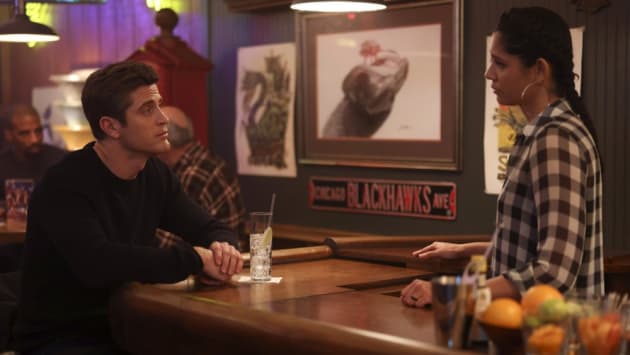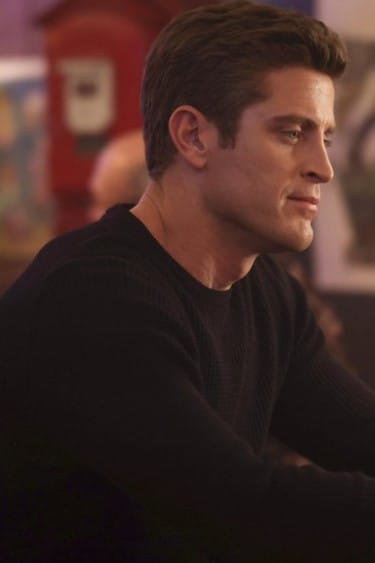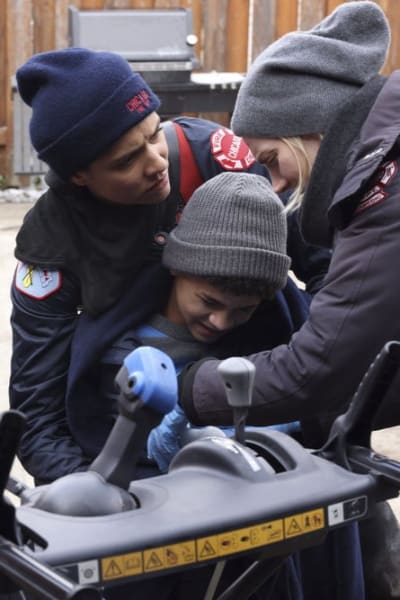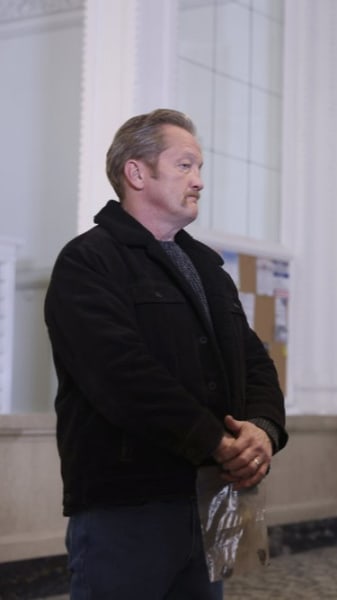We had to have a filler episode at some point, right?
Most existing storylines were brushed upon on Chicago Fire Season 11 Episode 14 without depth.
Carver dealt with the aftermath of his words and actions from Chicago Fire Season 11 Episode 13, while Cindy’s increasingly deteriorating health had Herrmann climbing walls and having a personality change.
Chicago Fire Season 11 Episode 13 was packed with huge moments, especially when Carver’s brother came to visit, and if there was anything we were expecting, it was that “Run Like Hell” would keep the same beat.
Unfortunately, it did not. The Carver and Kidd storyline is one of the most interesting, and in this episode, it just might have been the one best handled.
Carver is a loner, and choosing to drown his problems in liquor is what one would have expected. Apart from his job and the bar, he seems to have nothing much going on. That can be dangerous for a person. He is at a much higher risk of becoming an alcoholic.
The fact is that Kidd had been giving him a long leash when it came to his behavior and how he hid his feelings.
As his lieutenant, knowing important things in her crew’s life is Kidd’s business because they directly affect their job performance. When someone has a shifting personality, it is impossible to trust them. Carver can be smiling one moment and fuming with rage the next.
If I can’t trust you, I can’t work with you. It’s that simple.
Kidd
One could appreciate Kidd’s honesty when she confronted him and was honest with the fact that if she can’t trust him, she can’t work with him. Working with him without having complete confidence in him could put his life and the lives of the rest of the crew in danger.
The ultimatum she gave him about returning to work the following day and staying sober was the wake-up call he needed. He knew losing this job would greatly affect his life, so he cleaned up his act.
Honesty is not a one time thing. As I said, it’s the only way to work together.
Kidd
Carver has this idea that everyone is out to get him, which is an awful way to live. When he returned to work and saw that Blake was genuinely excited to have him back, it made him feel less lonely. That, plus the kick the job gives, gave him a reason to smile.
Although the obvious conflict was resolved, we can’t forget that Carver has feelings for Kidd. I’m glad that took the backseat momentarily because solving it so soon would have felt like a low blow. It is a storyline worth exploring over one, if not more, seasons.
Ultimately, Carver ended up seeing the error in his ways, and as far as his position at Firehouse 51 is concerned, he is safe.
Carver: I wanna be here.
Kidd: Good.
Ritter got a little screentime when an emergency he responded to presented him with some problems later.
Like most other storylines, this one felt rushed despite it being new.
Chicago Fire focuses on the characters’ personal lives, but it’s no secret that the focus is unequal.
They pretended to care about what was happening in Ritter’s personal life, but one can see through it. Isn’t it suspicious how everything in his personal life seems to happen offscreen?
Even when he gets a minor storyline, it amounts to nothing.
The storyline with the cheating politician was not precisely interesting. A cheating politician? How hard could coming up with that be?
The storyline did nothing to inspire anything in Ritter as a character. They had him anxiously prancing around for most of the hour and then resolved it at the last minute.
In all fairness, the show sometimes revisits some old storylines and characters, and if they don’t do this for Ritter, then this will have been a colossal waste.
A pattern about the character emerges. I don’t want to jump the gun, but it’s kind of biased to me and might amount to a certain “-ism” or “-phobic” that I don’t want to manifest.
Cindy’s cancer storyline also felt rushed, with us catching them when she had already been through chemo. The trick to making an impact with storylines about terminal illnesses or other things that affect families is to focus on the details.
For example, when all responsibilities fell on Herrmann’s shoulders on the last episode we could see and, to some extent, feel the pressure and frustration that he was under. Now, do the same for Cindy. Dedicate a whole episode of a couple to showing how she’s struggling.
Show how it has affected the children and Herrmann without feeling like a simple reminder that “hey, we still remember this is happening.”
Even after teasing something huge about Blake and Violet, the episode spent most of the time setting up the storyline.
I love slow-burn ships as the next person, but I don’t appreciate being baited into something. We all expected a hugely dramatic story about them and their feelings.
The setup felt okay with Blake agreeing to play fake boyfriend, not realizing he wants the real role more than anything. After that kiss, one could clock the mutual questions running through their minds.
Violet didn’t expect to like it so much, and Gallo didn’t expect it.
But even if we didn’t get something dramatic, the next episode promises a deep dive into Violet’s emotional status post-Evan’s death and Gallo’s feelings for her after sleeping around.
What was happening with Mouch and his investigation?
‘Run Like Hell’ felt it couldn’t run fast enough to escape its shortcomings and is honestly one of the few episodes of Chicago Fire in recent memory that came short.
The emergencies weren’t huge enough, and the storylines were not deep enough.
We always love reading your thoughts about it, so don’t hesitate to comment below.
Were you disappointed? If yes, why?
As always, you can watch Chicago Fire online on TV Fanatic anytime to catch up on what you might have missed.
Denis Kimathi is a staff writer for TV Fanatic. He has watched more dramas and comedies than he cares to remember. Catch him on social media obsessing over [excellent] past, current, and upcoming shows or going off about the politics of representation on TV. Follow him on Twitter.








